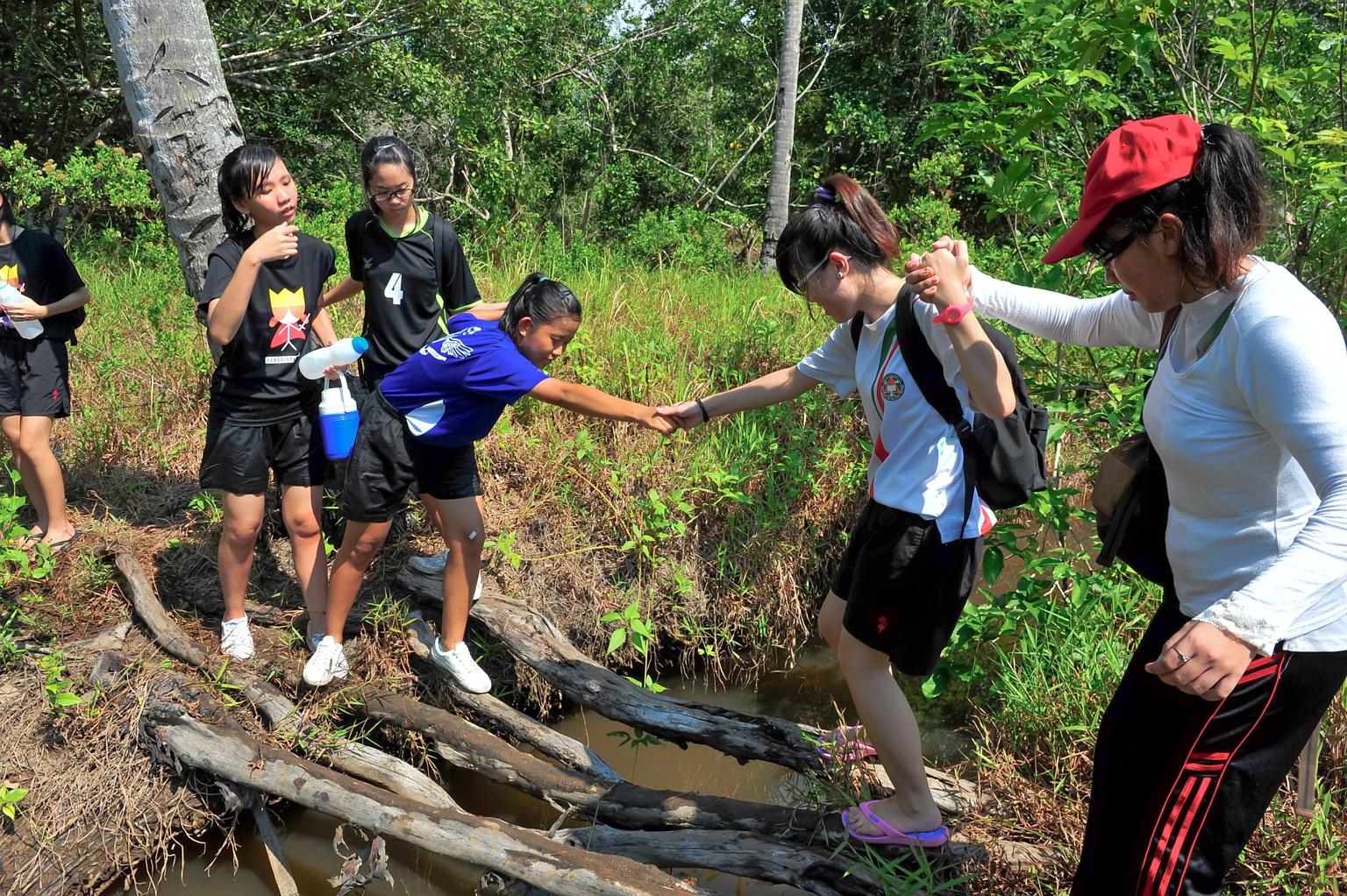Outdoor education
Schools still avoiding overseas adventure trips
Sign up now: Get ST's newsletters delivered to your inbox

Students from Bukit Panjang Government High School on a nature walk near LooLa Adventure Resort in Bintan in 2011. Outdoor education providers have seen a fall in overseas bookings since last year. They believe this is due to safety concerns and red tape.
PHOTO: A2CLICK PHOTOGRAPHY
Almost a year after the Sabah earthquake - which killed seven Singaporean pupils, two teachers and their tour guide on Mount Kinabalu - schools here are still reluctant to send their students overseas, outdoor education providers say.
This problem could also be compounded by misperception and red tape, according to Dr Marc van Loo, 52, who has been running outdoor programmes for schools at LooLa Adventure Resort in Bintan, Indonesia, for 15 years.
Before 2014, schools had to use the Ministry of Education's (MOE) framework agreement for overseas travel to source for travel service providers. Now, schools wishing to organise overseas trips involving outdoor activities must use the "invitation to quote" process to call for proposals from vendors.
The MOE said this is because outdoor adventure activities require "specialised instructors, expertise and support infrastructure, requiring safety assessment on an individual trip basis".
Both Dr van Loo and Mr Joey Ng, CEO of youth development company Camp Challenge, believe some schools misinterpreted the changes to mean that some private vendors were no longer MOE-approved.
Dr van Loo said bookings for school trips have dropped by 80 per cent from last year.
However, trips by schools that do not have to use MOE's framework agreement - such as international schools - have gone up by 20 per cent to 30 per cent.
Mr Ng's company operated around four overseas trips a month last year during peak periods like the post-exams season. Now, it holds only one. "The Sabah accident is still very fresh in everyone's minds," he said. "Schools want to play it safe and avoid overseas trips."
The MOE clarified that the new framework agreement in place since 2014 does not limit schools or the number of students going for overseas outdoor adventure trips.
However, two other companies, X-Trekkers and Agape Group Holdings, also said they have seen overseas bookings fall from last year.
The latter's chief executive Delane Lim noted that demand for local adventure programmes has tripled from last year. He said: "There is too much red tape and an unbelievable amount of paperwork just to get one (overseas) trip in order."
Yuen Sin


